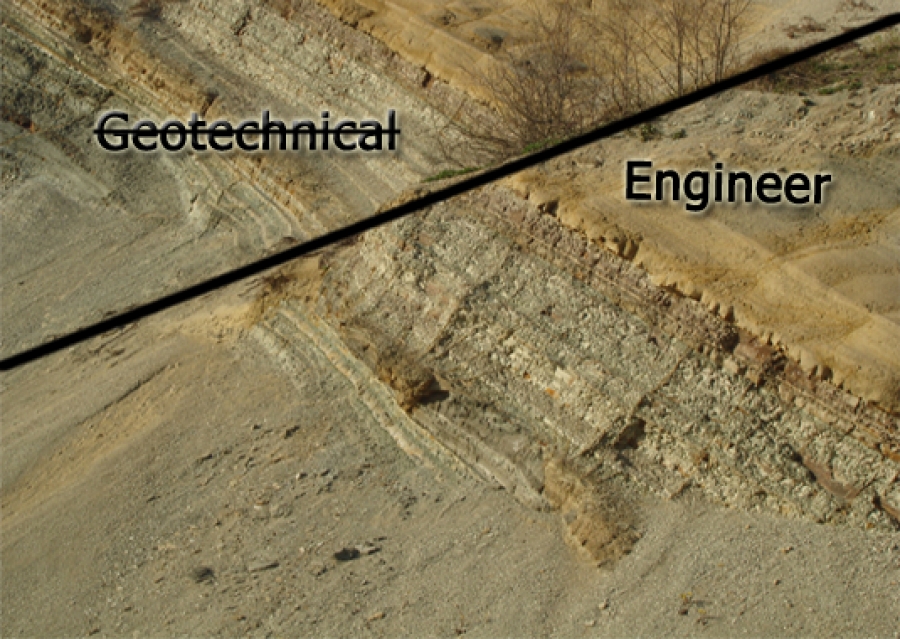A Thorough Overview of the Trick Providers Offered by Consulting Civil Design Professionals in Modern Construction
Consulting civil engineering professionals are important to the success of contemporary construction jobs, supplying a diverse collection of services that resolve various obstacles. From conducting complete site analyses and feasibility studies to ensuring compliance with stringent regulative structures, these professionals prepared for sustainable and risk-free development. Their proficiency reaches structural layout and project administration, which are vital for attaining timely and cost-efficient end results. As the intricacy of building and construction jobs continues to progress, comprehending the full spectrum of solutions they supply ends up being increasingly necessary for stakeholders. What implications does this have for the future of building methods?
Website Assessment and Feasibility Researches
When starting any type of building and construction job, understanding the website's qualities is essential, as it directly influences the feasibility and layout of the development. Site evaluation and feasibility studies are vital parts of the pre-construction stage, allowing stakeholders to make informed choices. These research studies include a detailed analysis of the physical, ecological, and regulatory aspects of the site.

By incorporating these components, civil engineering professionals can provide an alternative sight of the website's stability for the desired development. Eventually, detailed website evaluations and usefulness studies lay the groundwork for effective task execution, optimizing and reducing risks resource allotment.
Architectural Design and Analysis
Adhering to an extensive website assessment and expediency study, the next critical stage in the building procedure is architectural design and analysis. This vital service involves the growth of architectural systems that guarantee the safety, resilience, and economic stability of a job. Consulting civil engineers make use of sophisticated approaches and software to review tons, tensions, and product properties, making certain that styles abide by pertinent codes and requirements.
Architectural style encompasses numerous elements, consisting of beam of lights, columns, structures, and load-bearing walls. By using principles of auto mechanics and product scientific research, engineers develop structures that can hold up against environmental pressures such as wind, seismic activity, and snow lots. The analysis phase involves thorough computations to forecast the habits of these frameworks under various problems, ensuring they can do as planned throughout their life expectancy.
In addition, consulting engineers work together very closely with architects and other stakeholders to incorporate structural aspects cosmetically and functionally. The deliverables generally consist of detailed drawings, requirements, and extensive records that facilitate the building procedure. Inevitably, effective structural style and evaluation are critical in lessening threats, optimizing resources, and accomplishing effective task end results in modern construction.
Job Administration and Control
Reliable task monitoring and coordination are vital components of successful civil engineering services, guaranteeing that building projects are provided in a timely manner, within budget plan, and to the needed high quality requirements. Consulting civil designers play a vital role in orchestrating different task components, from preliminary planning with to project completion. This geotechnical engineering companies in south africa involves not just the technological facets of design and building however likewise the tactical management of timelines, stakeholders, and sources.

Furthermore, civil design professionals stress the significance of documents and reporting throughout the project lifecycle - geotechnical engineering in south africa. By preserving exact records, they guarantee openness and liability, which promotes trust amongst all parties involved. Ultimately, skillful job monitoring and sychronisation lead to enhanced task outcomes, aligning with customer expectations and contributing to the total success of the building undertaking
Regulatory Compliance and Permitting
Effective job management lays the groundwork for addressing regulatory compliance and permitting needs in civil engineering tasks. Making certain adherence to local, state, and government policies is important for the successful implementation and conclusion of any building undertaking. Consulting civil design specialists play an important duty in browsing the complex landscape of regulative structures and allowing procedures.
These professionals are well-versed in zoning regulations, building codes, ecological policies, and safety and security requirements that govern building practices. They conduct detailed analyses to determine all appropriate laws, ensuring that projects abide by essential lawful demands. By teaming up with governmental agencies and stakeholders, consulting designers help with the allowing process, improving authorizations and minimizing delays.
In addition, they prepare and send the requisite documentation, such as website plans, ecological impact assessments, and engineering reports. This proactive approach not only fosters compliance however likewise boosts project expediency and sustainability. Inevitably, effective regulatory compliance and allowing are essential elements of an effective civil design task, protecting both the atmosphere and public well-being while adding to the total honesty and success of construction efforts.
Lasting Layout Practices
Lasting design practices are increasingly acknowledged as essential components in civil engineering, with a focus on lessening ecological effect while making the most of resource effectiveness. These methods include a variety of methods targeted at promoting environmental balance and decreasing the carbon footprint of construction projects.
One key facet of lasting layout is the combination of renewable resource sources, such as solar and wind, into structure layouts. This not just decreases reliance on nonrenewable fuel sources however also improves long-lasting price savings. In addition, making use of lasting products, including recycled or rapidly renewable resources, plays a significant duty in lessening waste and saving natural sources.
Water monitoring techniques, such as rainwater harvesting and reliable irrigation systems, are also crucial in lasting style. These practices aid in decreasing water consumption and safeguarding neighborhood water ecological communities. Moreover, environmentally delicate site preparation makes sure minimal disturbance to the natural landscape and advertises biodiversity.
Consulting civil engineering specialists are important in applying these sustainable layout methods. Their knowledge enables the execution of cutting-edge services that straighten with both regulatory needs and client goals, ultimately contributing to an extra sustainable developed setting.
Conclusion
In recap, speaking with civil design professionals supply essential solutions that underpin the success of modern-day construction jobs. Via precise site analyses, innovative structural style, reliable project management, adherence to regulatory criteria, and the application of lasting techniques, these specialists add to the development of secure, reliable, and environmentally accountable advancements. The assimilation of these vital services not only enhances job results however additionally advertises a lasting future in the construction industry.
Effective project administration and sychronisation are crucial parts of effective civil design solutions, making sure that building and construction tasks are delivered on time, within budget, and to the required quality standards. Consulting civil engineers play a vital duty in managing different job aspects, from preliminary planning through to project conclusion. Inevitably, proficient task monitoring and control lead to improved job outcomes, aligning with customer assumptions and contributing to the overall success of the construction undertaking.

Comments on “Geotechnical Engineering What Is It and Why Is It Crucial for Construction Projects?”